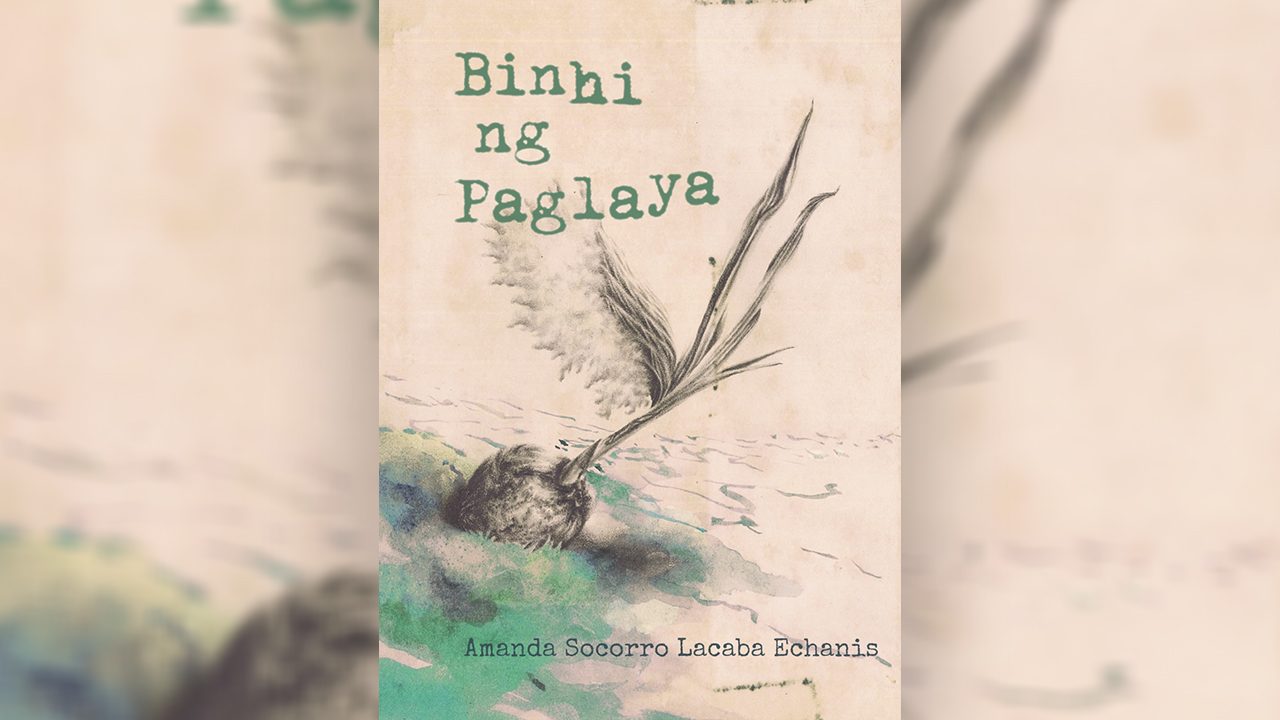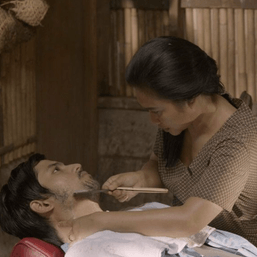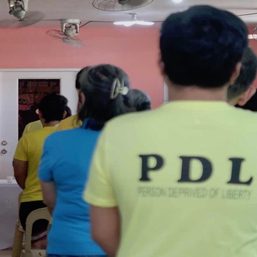SUMMARY
This is AI generated summarization, which may have errors. For context, always refer to the full article.

This country has a complicated relationship with its writers and poets. The general attitude sees writers (and a lot of artists) as adornments: nice to have, mildly impressive, subtly communicating an elevated taste, but overall unnecessary. People to introduce during fancy dinner parties so your friends can coo and pretend they’re well-read.
But when those same writers find the steel in their spines to embody the spirit of their words, they become a problem.
We have a long history of arrested and imprisoned writers: dramatist Aurelio Tolentino, student journalist Abraham Sarmiento Jr., screenwriter Pete Lacaba, poet Mila Aguilar, labor leader and novelist Amado Hernandez, poet and peasant advocate Ericson Acosta – the list goes on.
Martial Law under Marcos Sr. saw a who’s who of the Philippine literary and arts community cooling their pens in prison. Our national hero was famously an imprisoned writer.
This bitter tradition continues to this day with imprisoned poet, mother, and peasant women organizer Amanda Echanis who recently released her collection of works, Binhi ng Paglaya.
Amanda Echanis is a writer and an alumni of the Philippine High School for the Arts. She studied at the University of the Philippines, Diliman, before choosing to work with urban poor communities. She became executive director of the Urban Poor Resource Center of the Philippines before moving to Cagayan to become a provincial organizer for the Amihan National Federation of Peasant Women.
In December 2020, Echanis was arrested in her home in Cagayan amidst an intensifying government campaign against activists and the sustained red-tagging of progressive groups. Echanis was charged with illegal possession of firearms, ammunition, and explosives. She was taken into custody in the early morning, in the middle of breastfeeding her one-month old baby. She is currently detained in Camp Adurro in Tuguegarao City.
Published by Gantala Press and the Free Amanda Echanis Movement, Amanda Echanis’ Binhi ng Paglaya features poetry, essays, and a play that Echanis wrote both before and during her incarceration.
It is not her imprisonment that informs the sensibilities in Echanis’ writing, but her deep understanding of the hopes and struggles of the community she has long served.
Echanis’ poetry is grounded, sensitive, and vulnerable. Her writing is quiet and observant. She writes about other people – her mother and father (both activists and human rights advocates as well), her infant son (who remains behind bars with her), and friends and mentors like Nanay Mameng, the late and fiery urban poor leader Carmen Deunida with whom Echanis worked closely. Binhi ng Paglaya closes with the script of the play Nanay Mameng, about the life and works of Deunida.
Her poetry may be quiet, but there is undeniable strength between Echanis’ words. There is a mother’s fear when she writes about how she covered her child with a light blanket on the rainy morning that State forces raided her home in “Sa Sinapupunan ng Digma.” There is horror in implied interrogation and threat in “Pagdating ng Araw.” In both poems, Echanis tempers and punctuates the ordeal by turning her sight back to the child in her arms, consoling him, lulling him to sleep. And as readers, we are likewise comforted, assured of safety and protection, even as Echanis lets us sense that there is danger and conflict just underneath the surface.
It is impossible to separate Echanis’ activism and imprisonment from her writing, just as it’s impossible to separate her being a woman and a mother.
There is heartache as she remembers her father’s laughter, and how she feels closer to him now behind bars (her father, peace consultant Randall Echanis, was similarly imprisoned during Martial Law. He was murdered by state forces in his home five months before Amanda was arrested in Cagayan). There is quiet resignation as she wonders why her baby chooses to wake at night, so she has to keep him entertained and quiet while her prison mates sleep.
And there is hope. In every poem throughout the collection, hope is the loudest note. Hope not just of freedom from incarceration, but of someday existing in a society where peasants and farmers enjoy the fruits of their toil. It flits through the imagery of prison bars, a calendar date of a hearing that keeps being pushed back, and pushing her son’s hair from his sweaty forehead.
The hope that Echanis writes about isn’t vague or ethereal, the way many poets romanticize an idealized hope. It is the same concrete and material hope that activists, peasant advocates, and labor leaders emphasize in their educational discussions and mobilizations. It is anchored on real, material conditions. And Echanis approaches it in a systematic way. She writes about being free from hunger, and the rough but warm hands of farm workers, and how they love, joke around, and dream. She writes about someday being able to sit around with her community to dance and sing when we are no longer crushed by the struggle to merely survive.
That is the crux of Binhi ng Paglaya, a translation from the Greek poem turned rallying cry of activists around the world, “They tried to bury us, be they didn’t know we were seeds.”
Echanis also presumably borrows stories from her kosa, the other women deprived of liberty with whom she shares her prison cell. In “Kalendaryo,” “Sabong Panlaba,” and “Lupang Pangako,” Echanis takes on different personas – a woman who killed her abusive employer, another who considers selling drugs to survive, and a widow whose land was stolen from her and decides to take up arms. In all three poems, Echanis shows the strength and vulnerability of women with no recourse but to make hard decisions to improve their lives.
Most importantly, Binhi ng Paglaya is a continuation of Echanis’ struggle and resistance. Imprisonment tends to bury Echanis and people like her away from the spotlight, away from people’s minds. But her writings are a resounding act of defiance.
In this collection, Echanis delivers a poignant and unflinching look at the people at the very heart of the struggle for national liberation, intertwined with her own experiences as an activist, mother, and prisoner. Her work is part-personal narrative, part-political commentary, fully painting a picture of resilience. – Rappler.com
To buy the book Binhi ng Paglaya, visit Gantala Press’ Shopee page.
To learn how to support the Free Amanda Echanis Movement, visit the group’s Facebook page.
Add a comment
How does this make you feel?
![[OPINYON] Sulat ni Amanda Echanis sa kanyang nanay ngayong Pasko](https://www.rappler.com/tachyon/2020/12/free-amanda-echanis-presser-erlinda-december-9-2020-003.jpg?fit=449%2C449)






![[Rappler Investigates] Who’s fooling who?](https://www.rappler.com/tachyon/2024/02/rodrigo-sara-duterte-2019.jpeg?resize=257%2C257&crop=167px%2C0px%2C900px%2C900px)


There are no comments yet. Add your comment to start the conversation.